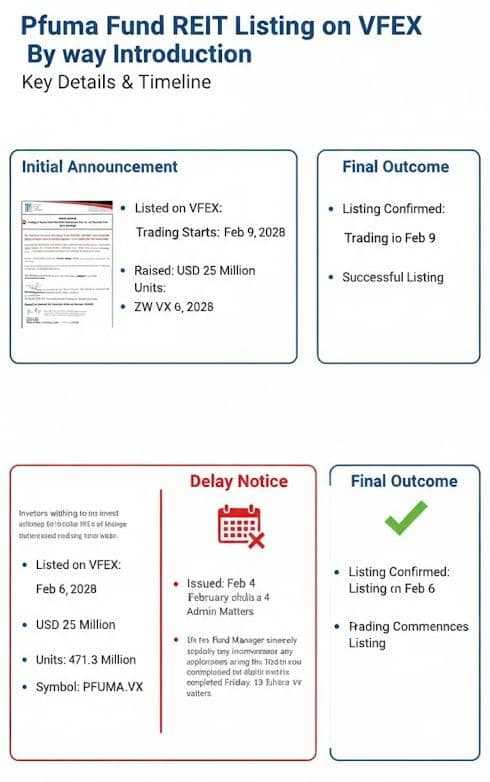
Nyashadzashe Ndoro- Chief Reporter
Zimbabwean companies are increasingly encountering significant hurdles in their financial reporting obligations amidst the government's determined push for the adoption of the Zimbabwe Gold currency as the primary unit of exchange.
This transition, intended to stabilise the nation's volatile economic landscape, has presented a complex set of challenges for businesses operating in a highly dollarised environment.
On Wednesday, First Mutual Holdings Limited announced a further delay in the release of its financial statements for the year ended December 31, 2024, now expected by May 31, 2025.
In a public notice, FMHL attributed the delay to the ongoing technical review of its translated ZiG financials by the company's auditors.
"First Mutual Holdings Limited wishes to advise its shareholders and members of the public that the Zimbabwe Stock Exchange has granted approval for a further extension of the publication deadline for the financial statements for the year ended 31 December 2024 to 31 May 2025.
The delay has arisen because the Company's auditors are yet to complete their technical review of the translated Zimbabwe Gold financials," read the order issued by the board.
Related Stories
This situation highlights the broader impact of a policy shift announced earlier this year by the Reserve Bank of Zimbabwe. The central bank, under Governor John Mushayavanhu, decreed in February that all entities listed on the Zimbabwe Stock Exchange must report their financial results in ZiG, with immediate effect, including for the 2024 audited financial statements.
The directive reversed a growing trend among listed companies, including giants like Delta Corporation, which had increasingly adopted the US dollar for financial reporting, reflecting the high degree of dollarisation within the Zimbabwean economy where a significant portion of transactions are conducted in foreign currency.
The RBZ justified the move by citing the "need to ensure comparability of financial statements" and pointed to an "increase in the number and value of transactions settled" in ZiG, which was introduced in April of the previous year. The decision followed earlier concerns from the government, regarding foreign currency shortages, business closures, and de-stocking attributed to the struggling local currency.
The transition to ZiG reporting has, however, presented hurdles for companies and their auditors. The technical complexities of translating existing US dollar-based financial data into the new local currency require thorough review to ensure accuracy and compliance.
FMHL's extended delay suggests that this process is proving to be more intricate than initially anticipated.
Furthermore, the central bank's recent decision to reduce the portion of foreign currency earnings that exporters can retain has added another layer of complexity for businesses.
Exporters and other stakeholders have voiced concerns that their operational costs and working capital are predominantly in US dollars, making the reduced foreign currency retention a significant challenge.


















Leave Comments